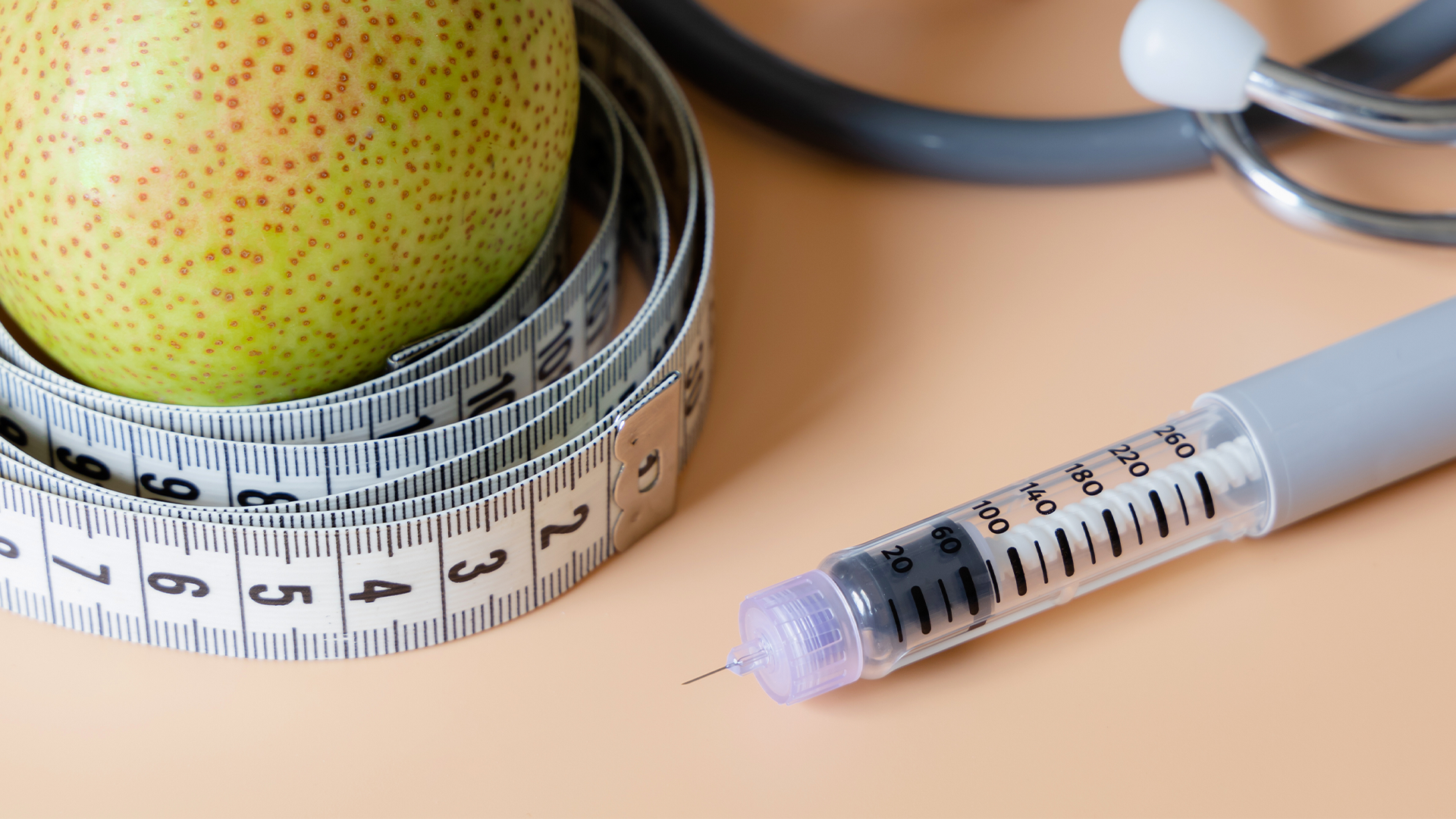Grab your cheat sheet |
It’s impossible to escape the buzz around the latest weight loss drug revolutionizing the weight loss industry, with well-known celebrities names such as Elon Musk and Chelsea Handler being some of the first to try it.
Brand names Ozempic, Wegovy and Rybelus are leading the pack causing people to achieve previously unattainable weight loss through their use.
But what exactly is Semaglutide?
Is it the same as Ozempic?
Do these weight loss drugs work for everyone? And are they safe?
Let’s take a deep dive into all things Semaglutide so you can get the lowdown on its benefits, side effects and whether it is right for your weight loss goals.
What is Semaglutide?
Semaglutide, at its core, is an antidiabetic and anti-obesity medication. It exists within the class of medication known as glucagon-like peptide-1 receptor agonists (GLP-1 RAs).
It’s an active ingredient that serves the purpose of regulating blood glucose levels.
Specifically formulated to treat type 2 diabetes, it also has an additional feature of being beneficial for cardiovascular disease and managing long-term weight management in people with obesity.
Who is Semaglutide Intended For?
You might have heard about anyone and everyone taking this medication.
But Ozempic, Wegovy and Rybelus are intended for those with type 2 diabetes that are dealing with chronic obesity (usually a BMI of over 30).
Rybelus is the only drug that is prescribed to patients without diabetes.
These medications can be prescribed as a single therapy or can be used in conjunction with other diabetes medication for patients who did not respond to other medications.
How Does Semaglutide Work?
Let’s take a look at the science behind how this medication works.
As we know, Semaglutide is a GLP-1 receptor agonist, which essentially means that it copies the actions of the GLP-1 hormone in the body.
GLP-1 plays a key role in regulating both glucose levels and appetite in individuals. So by mimicking the effects of it, this medication helps to reduce hunger levels and consequently leads to weight loss.

It also intensifies the production of pancreatic beta cells (cells existing in the pancreas that play an important role in regulating blood glucose levels). These cells in turn increase insulin production and release.
The result?
Individuals with type 2 diabetes see a reduction in blood sugar levels as lower blood sugar levels are achieved, improving glycemic control. The more GLP-1 in the body, the more the brain receives signals that the stomach feels full and appetite is reduced.
Weight management is easier when this medication is used alongside a healthy diet and exercise program.
What is Semaglutide used for?
As its main use is to control blood sugar levels by stimulating insulin release and, in turn, reducing appetite, it has been designed to lead to weight loss in individuals with type 2 diabetes.
It is also used to reduce the risk of cardiovascular events like strokes and heart attacks in people with heart disease and type 2 diabetes.
The medication is key in weight loss management for individuals who are overweight or obese so that they may achieve a healthy body weight.
Who Makes Semaglutide?
The medication has been manufactured since 2012 by Danish pharmaceutical company Novo Nordisk, according to the U.S. Food and Drug Administration (FDA) and was developed as a treatment for type 2 diabetes and obesity.
It was approved in 2017 by the U.S. FDA under the name Ozempic, and in 2020, Semaglutide was approved for obesity treatment under the name Wegovy.
Is Semaglutide the same as Ozempic?
No, they aren’t the same thing, but they are similar.
In fact, Semaglutide is the generic name for the active ingredient found in Ozempic and other medications like Wegovy.
So, Ozempic is one of the brand names that Semaglutide is sold under.
What is Ozempic?
Ozempic is a specifically formulated medication used to treat type-2 diabetes with once-weekly injections.
It is prescribed to individuals who have diabetes, need to lose weight and are at risk of cardiovascular complications.
Find out everything you need to know about Ozempic here.
Is Semaglutide the same as Wegovy?
The best way to explain the relationship is that they are related, but not the same.
Wegovy is the brand name of a medication prescribed to individuals with weight management issues.
What is Wegovy?
Wegovy is another brand name that contains Semaglutide and is prescribed for weight lossand formulated to target adults with chronic weight management issues who are obese or overweight. It is administered through daily injections.
Wegovy is approved and specifically formulated for weight loss management and differs from Ozempic, which is formulated for those with type-2 diabetes.
Find out everything you need to know about Wegovy here.
What is the pill version of Semaglutide?
The tablet form comes under the brand name Rybelus.
As with Ozempic and Wegovy, Rybelus is another brand name that contains Semaglutide as the active ingredient found in it.
What is Rybelus?
Rybelsus is formulated as an oral tablet of the GLP-1 agonist Semaglutide, to be taken once a day. It is taken under the tongue and dissolved.
It has similar effects on blood sugar control like Ozempic by regulating blood sugar levels but Rybelus is prescribed for the treatment of type 2 diabetes mellitus in adults - in addition to diet and exercise.
Rybelus can also help with weight loss in patients who do not have diabetes. It is an additional option for patients where metformin, a medicine for diabetes - isn’t effective.
What is Compounded Semaglutide?
These medications are custom-made compounded versions of Wegovy and Ozempic and, importantly, have not been tested and approved to FDA-approved standards and are not regulated.
The US Food and Drug Administration (FDA) has issued a warning about compounded versions of Semaglutide (and any drug), stating that compounded versions of these drugs are not reviewed for effectiveness, quality or safety.
Compounding pharmacies are pharmacies that are able to formulate customized medications based on a prescription provided by a healthcare provider.
Semaglutide is a medication that these pharmacies compound, so each formulation can be created for the specific needs of the patient.
Is Compounded Semaglutide Safe to Use?
In short, no.
The FDA has discovered in some cases that compounders may even be using salt forms of Semaglutide for their medical formulations which are different active ingredients than used in the approved drugs.
The only way to ensure the products are verified and safe is to receive a prescription from a licensed healthcare provider and from FDA-registered pharmacies.
Avoid any company marketing their own weight loss drug version of Ozempic, Wegovy or Rybelus online as this is highly likely to be a scam.
How to Take Semaglutide?
Usually, it is administered as a subcutaneous injection under the skin. But it can also come in tablet form.
What Is the Dosage for Semaglutide?
Typically, it is injected once a week, but it really depends on the specific brand.
A healthcare professional and the package insert will explain exactly what dosage is correct for you.
According to Drugs.com, the recommended dosage for type 2 diabetes prescribed patients is:
- The Initial dose: 3 mg orally once a day for 30 days
- Titration: If additional glycemic control is needed after receiving 7 mg/day for at least 30 days, the dosage may be increased to 14 mg/day.
- Maintenance dose: 7 to 14 mg orally once a day.
For a detailed breakdown of dosages for adults check here.
Where do you put Semaglutide shots?
You can rotate on the body where you inject from your thigh and abdomen to your upper arm. Rotating is important because it avoids tissue damage and any reaction from repeated injections in the same place on the body.

Never inject it into your veins or muscles and take care to avoid injecting into areas that feel hard, tender or look red.
Is Semaglutide the same as insulin?
No.
Insulin is a naturally produced hormone that helps to regulate sugar levels in the blood. Insulin replaces the insulin the body isn't producing enough of.
Semaglutide is a medication designed for those with diabetes to help lower blood sugar levels. It stimulates insulin production.
Is Semaglutide better than insulin?
Whilst both treat diabetes, they get to work in different ways.
Semaglutide assists the body in making more insulin. Insulin replaces the insulin the body isn’t producing enough of.
Studies show that both medications are effective, and it depends on the type of diabetes as well as the individual response.
It is commonly asked if Ozempic is an insulin. And the answer is no.
What Does Semaglutide Cost Per Month?
The cost of the drug differs per country. In the U.S., it all comes down to which pharmacy, the dosage required and, of course, the insurance coverage you have. Coupons and discounts also factor in.

Without insurance, it can cost from $970 to $2,120 per month and, between $10 to $25 per month.
So, is Semaglutide covered by insurance? Yes. But it depends on your insurance plan, the type of drug you have, and the dosage.
Where Can I Get Semaglutide Near Me?
As it is a prescription medication, it must be prescribed by a doctor in a medical setting.
Then, once you have the prescription, you can pick it up from a licensed pharmacy.
It isn't a case of just ordering it online - it must go through the necessary medical channels.
What Not to Eat on Semaglutide?
According to Healthnews, it’s important to limit or avoid the following foods:
Added Sugars
- Candies, baked goods and sugar-packed drinks can contribute to weight gain and high blood sugar levels.
Refined Carbs
- Avoiding rice, pasta, white bread and flour-based foods will help to prevent high blood sugar levels.
Alcohol
- Drinking alcohol whilst taking Semaglutide can worsen the side effects of the drug and also risk low blood sugar levels.
Fatty Foods
Ensuring your diet doesn’t contain full-fat dairy, fried foods, fatty meats and high-fat meals will prevent the worsening of the gastrointestinal effects of semaglutide.
Start a meal plan such as 30-minute healthy meals as a way to ensure you get all the nutrients and minerals you need to lead a healthy life.
What are the Best Foods to Eat While Taking Semaglutide?
Looking for ways to have a low glycemic index is ideal.
Concentrate on meals with lean proteins, whole grains, healthy fats and fruits and vegetables for optimum results.
Drink plenty of water and limit fruit juice.
What Happens with a Missed Dose?
A missed dose isn't the end of the world, but the general approach is to take it as soon as possible - within five days after missing the dose.
The next dose should be taken at your regular weekly time. If you’ve missed your next dose and you’ve exceeded five days, skip the missed dose.
It’s important to emphasis to skip the missed dose if five days have passed because if you double up on the medication, there is a higher risk of developing side effects.
The instructions will vary per drug, so always call your doctor to check if you don't have the instructions of use for your medication.
How Quickly Does Semaglutide Work?
Pretty quickly. Results can begin to show within only a few weeks of use.
Of course, different people will see results at a different pace.

In one clinical study, some individuals experienced more than 2% weight loss of their entire body weight in a 4-week period.
What Happens After Taking Semaglutide?
Some patients describe appetite reduction in the first week, but for others, it takes longer.
The immediate experiences of those who take the medication are more anecdotal and depend on the individual so conclusions shouldn’t be drawn from individual experiences.
On the inside of your body, it should be increasing insulin secretion and reducing appetite in due course, the results on the outside may come at a different pace.
What are the Potential Side Effects of Semaglutide?
It’s a huge topic in the industry at the moment, and there’s no denying there is a whole scale of side effects from Semaglutide use, ranging from mild to moderate and severe.
Mild Semaglutide side-effects
There are many documented cases of mild side effects with Novi-health summarizing them as constipation, diarrhea, stomach cramps or pain, headaches, dizziness, nausea, a decrease in appetite and indigestion.
Generally, these types of gastrointestinal symptoms are mild and may improve as the body adapts.
Moderate Semaglutide side-effects
Recorded side effects of a moderate nature are stomach pain, diarrhea, heartburn, pressure in the stomach, fatigue, vomiting and various gastrointestinal issues.
Severe Semaglutide side-effects
Though rare, there are several severe side effects associated with Semaglutide use.
Drugs.com lists them as:
Severe hypersensitivity reactions may result in a rash, swelling of the tongue and trouble breathing.
Pancreatitis involves severe abdominal pain, severe stomach pain and vomiting. A medical professional should investigate any kind of pain in the stomach.
Serious allergic reactions such as angioedema.
Serious allergic reactions such as anaphylaxis involve serious trouble breathing. As with any allergic action, this is a potentially life-threatening condition that requires immediate medical attention.
Some individuals may develop high blood pressure after use.
Acute kidney injury involves blood in the urine, seizures, swelling in the body and muscle twitching.
The Ozempic site clearly states that thyroid tumors may develop after use, leading to thyroid cancer (medullary thyroid carcinoma).
Studies with animals have shown them to develop thyroid cancer with use of this medication, and anyone with a personal or family history of the disease should not use the medication.
How Long Do Semaglutide Side Effects Last?
The side effects can be temporary, a few days, a few weeks or lead to ongoing medical treatment - potentially emergency or life-saving treatment.
It depends on the body’s reaction and ongoing medical conditions.
How Can the Side Effects of Semaglutide be Managed?
Mild to moderate symptoms can be managed to an easier extent with a decrease in dosage, pause in medication or lifestyle changes after consulting with a healthcare professional.
By leading a healthy life with a good, balanced diet and exercise, you can avoid slow digestion. Semaglutide slows down digestion, and foods that are high in fat or large in portion size can exacerbate this.
Staying hydrated is key - a slower digestive process means you may easily get constipation as the gut takes more water from your food. Do not drink fruit juice or anything high in sugar with your dose as this can raise blood sugar levels.
Taking Semaglutide with a meal is recommended and opting for low-glycemic index fruits to accompany your dose.
Avoiding eating too close to bedtime is a good way to manage indigestion and reflux.
What is the Black Label Warning on Semaglutide?
Semaglutide carries a black box warning for the risk of thyroid C-cell tumors.
This is the strongest warning given by the FDA, indicating that a medication presents significant risks.
The black box warning for this medication is the same warning that opioids carry.
Does Semaglutide Work?
As we know, the use of the medication can lead to weight loss in people who are overweight or obese. But what about the specifics of weight loss and metabolism - what kind of results can be expected?
Does Semaglutide speed up metabolism?
In terms of metabolism specifically, whilst some studies have shown that semaglutide can lead to weight loss in people with obesity or overweight, weight loss itself can potentially have an impact on metabolism as energy expenditure is changed.
How Does Semaglutide Work for Weight Loss?
We know that the medication is effective for weight loss when used in conjunction with lifestyle changes, but let's break it down into stages to see how it gets to work.
- The brain centers involved in appetite regulation (particularly after eating) are targeted by Semaglutide. The result? Individuals eat less and fewer calories are consumed.
- Gastric emptying (food stays in the stomach longer) is slowed down which creates a feeling of fullness and hunger cravings are reduced.
- Blood sugar levels are controlled, and excessive insulin secretion is prevented.
What Semaglutide is Best for Weight Loss?
The best formulation out there at the moment for weight loss is Wegovy. A study published in the New England Journal of Medicine saw participants who received the drug in a 2.4 mg dosage experience greater weight loss compared to the placebo subjects.
How Much Weight Can I Lose on Semaglutide Injections?
Factors such as what diet and exercise program individuals are on will influence the rate at which the medication works. Let's find out how much weight loss is possible for those using the drug.

How Fast Do You Start Losing Weight on Semaglutide?
Weight loss culminates with regular use over time. One particular study shows that 1,306 patients who took the medication for between 12 to 28 weeks achieved weight loss of approximately 6%. By week 28 weight loss was at 12% - both displaying significant weight loss figures.
Does Semaglutide Get Rid of Belly Fat?
There is evidence to suggest that the medication can reduce regional visceral fat, with belly fat included.
In a study of overweight or obese patients, treatment with the drug for 68 weeks resulted in a significant reduction in total mass, -19.3%, in fact. The results for regional visceral fat were -27.4%.
Additionally, a further study found that treatment with the medication for 20 weeks resulted in a reduction in waist circumference compared to the placebo.
Is Semaglutide Safe?
As directed by a doctor for intended patients with specific illnesses, Semaglutide is generally considered safe - which is how it received its FDA approval.
Whilst it has undergone extensive research and clinical trials it does still present significant side effects for anyone taking it, especially with pre-existing conditions and a family history of certain diseases such as thyroid cancer.
As the medication is intended for obese, overweight and/or with type-2 diabetes, it is not yet legal to be administered to individuals outside of these groups and, consequently, shouldn't be viewed as an option for weight loss unless prescribed.
Is There a Safer Way to Lose Weight than Semaglutide?
As you know, diet is a fundamental part of losing weight the safe way.
Couple this with exercise and both your body and brain will benefit from the results.
For a science-backed option that doesn’t involve injections or a prescription, add in the PhenQ natural weight management system to your day.
Sure to crush cravings, kickstart your metabolism, reduce fat accumulation and balance your mood and energy levels, it’s a fuss-free option that doesn’t break the bank.




